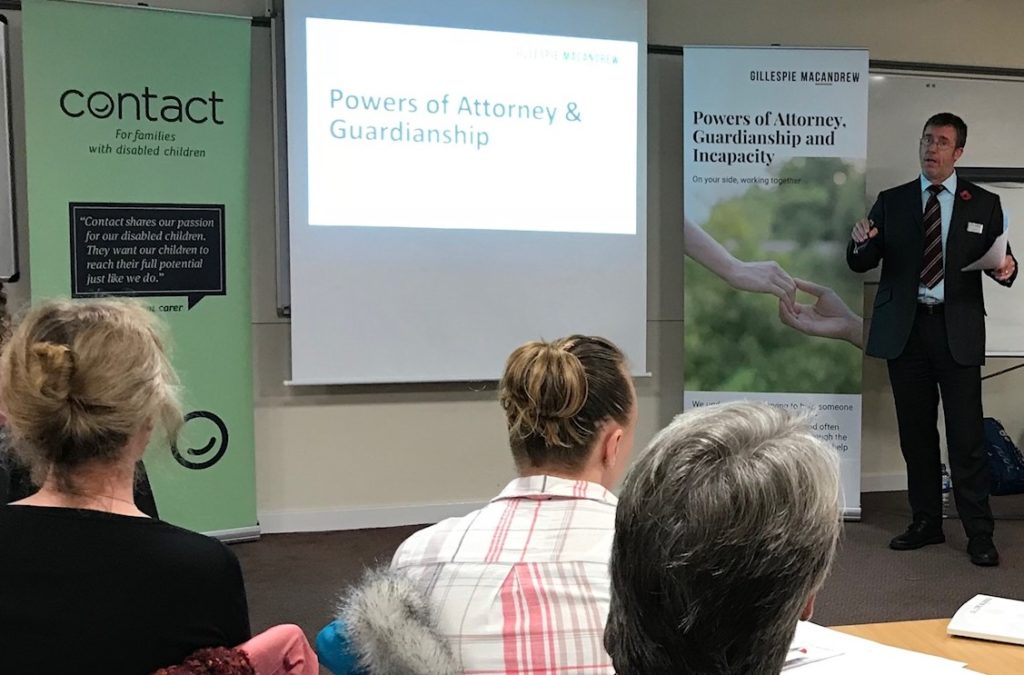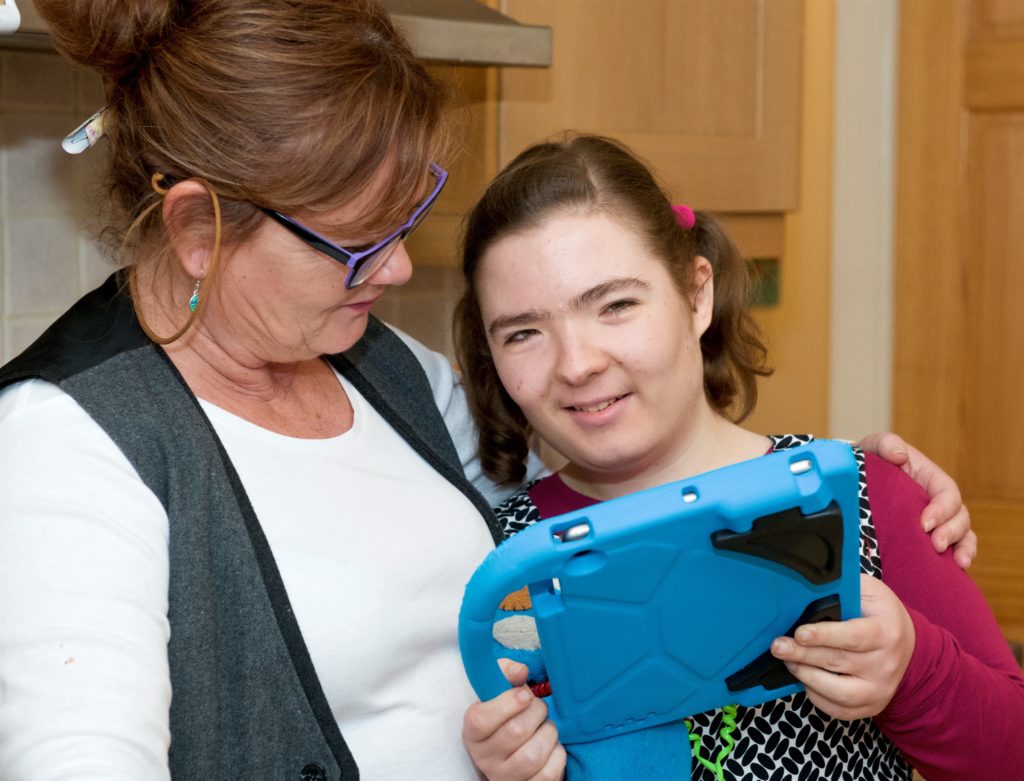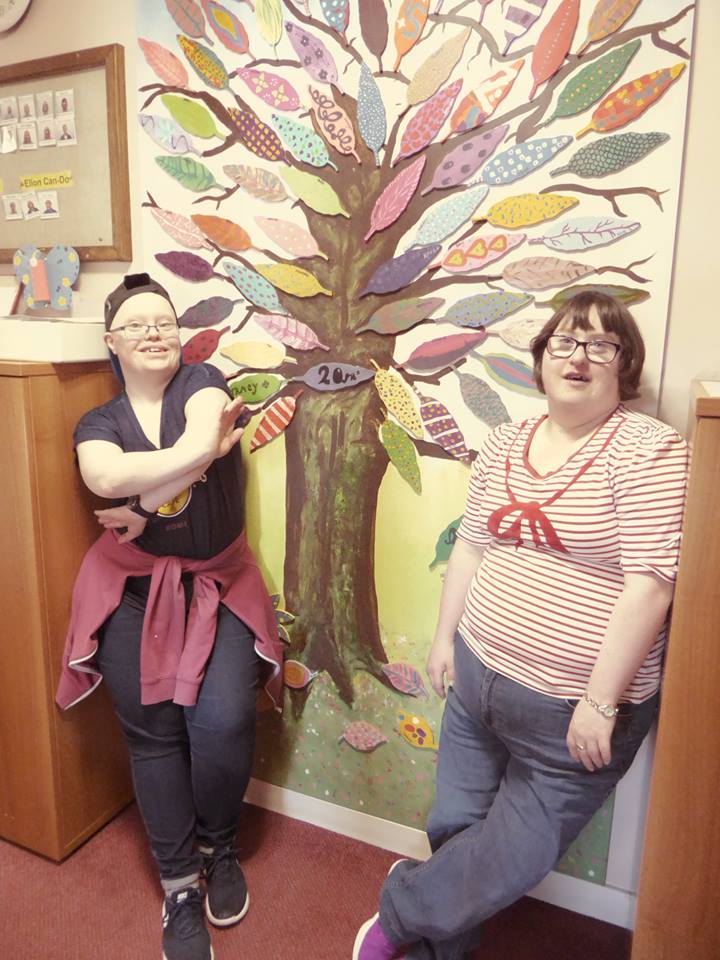This guide is about the transition from children’s to adult health and social care services in Scotland. The transition process can be complex, with changes in roles, responsibilities, and professional services. This page outlines the main things to consider, such as differences in service structures, legal requirements for consent and guardianship, and the importance of early planning.
In this article
Moving to adult services
Children’s and adult services are organised differently.
Some roles disappear altogether, while others may be called something different or have different responsibilities.
The age young people move from one to the other can vary depending on the service and where you live. Sometimes it’s 16, sometimes 18, and in some places it may be older depending on individual circumstances.
Some areas have transition teams that help manage the transfer to adult services. But many parents find they need to do a lot themselves to coordinate services and support.
Often one of the biggest changes they notice is that adult services gear towards working with individual adults. This can make it difficult for families to be involved in a young person’s support in the same way as before.
- It helps to be prepared. Expect it to take time to adjust to a new system and new people.
- Start early. Ask how different roles fit together to help you understand where there may be gaps and how best to fill them.
- Be clear about the support your young person needs and what works for them.
- Be persistent – it’s a marathon, not a sprint.
It can feel very uncertain at first, but many parents say that over time they and their young people prefer the increased flexibility of adult services and feel they have more control.
A word about consent
Information about your young person and your family should never be shared without consent.
Young people 12 and over who have enough understanding must be asked for consent before information about them is passed to anyone else. A teacher or other professional who knows them may carry out a “capacity assessment” to work out if they understand what their decision might mean.
If they do not have enough understanding, you should be able to give consent on their behalf until they are 16. After that, you will need guardianship or power of attorney. However it is still important you try to find out their wishes and follow them as far as possible.
You may want to talk with your young person about what they are happy sharing so you are both ready when the time comes.
Healthcare through the transition period and beyond
There are many changes that take place in healthcare as adulthood approaches. These are likely to include:
- Different people responsible for care. Children’s and adult’s medical services tend to be quite separate. Usually only GP services work with patients across all ages.
- Health teams structured in a different way. The way professionals work together may be very different.
- Less coordination among professionals. There is no equivalent of paediatric services to provide a link between health teams, therapy teams and social care.
- Professionals’ roles may be different in adult services. Titles may change, or the same title may carry different responsibilities. Sometimes there may be no equivalent adult service.
- Doctor-patient relationship changes. Without guardianship or power of attorney, parents have no right to be involved in decisions around health and welfare needs. Medical staff can’t break a patient’s confidentiality to share details of treatment or medication. This applies even in emergency situations.
- Support services, such as respite, may be increasingly hard to get.
If someone is likely to have ongoing healthcare needs, it’s really important for these to be part of the transition plan so the right adult service is in place when the children’s service comes to an end.
The school, or whoever is coordinating the transition planning process, should make sure it invites all appropriate healthcare professionals to take part and includes their input. You can ask for particular services or therapies to be represented. However it can be difficult to coordinate meetings so that everyone can attend.
Welfare guardianship or power of attorney
Having legal power over a young person’s finances does not automatically give you the right to make decisions about their health, medication, or treatment. If you think you’re likely to need this, it’s important to apply for welfare powers as well. Or speak to a solicitor to get them added as soon as possible.
Make sure you fully understand the powers granted to you so you can explain them when needed. These powers vary based on each person’s circumstances. Professionals may not always understand what powers you have and what this means in practice.
If your young person agrees, it can be helpful to create a letter for them to sign, which states that they want you involved in any meetings and discussions with them. While not legally binding, this letter will make their wishes clear and should be respected whenever possible.
For more information on guardianship and power of attorney, visit our legal matters pages.
Health passports
These can be hugely helpful as part of planning. You can share them among professionals to make sure everyone has access to essential information about the young person and their needs.
Passports can include medical information, how the young person communicates, any wishes they have been able to express, and anything else that helps someone understand and support them more effectively.
They can be written by friends and family, or created digitally and shared electronically. Read more information about creating a digital passport online. Or you can download tips and templates to help decide what to include.
Transition care plans
Many different care plans are in use in Scotland to coordinate transitions between services.
Two you may come across are the transition care plan (TCP) or Ready Steady Go. TCP help young people receiving support from CAMHS to transfer to adult mental health services. Ready Steady Go is recommended where a young person has a chronic or long term health condition. Your area may use others.
If your young person will continue to need physical or mental health services into adulthood, speak to the professionals involved in their care to find out how this will be handled.
Whatever the process, healthcare professionals – like everyone else – have a duty to put the young person’s wellbeing at the centre of the transition to adult service process. They should collaborate with other professionals who support them, to ensure relevant information is shared and plans work together as far as possible.
Anxiety and mental health
Anxiety, depression and related conditions are common in young people with disabilities. It can be difficult to find effective treatment.
Your GP should be able to discuss medication or make a referral to mental health services. They will need your young person’s permission to include you in their discussions, unless you have guardianship or power of attorney for health and welfare.
Some young people find talking therapies such as cognitive behavioural therapy (CBT) beneficial. Others find it totally unhelpful, or that the length of time offered is far too short.
There are private counsellors and psychotherapists across Scotland. Some of them are experienced in working with people with disabilities of various kinds. You can search the Counselling Directory Scotland to find a practitioner near you. However, being listed doesn’t necessarily mean someone has the right skills or experience. You need to use your own judgement or ask for recommendations to choose the best person for you.
Role of social services
What are social services?
Social services is the department of your local council that is responsible for the welfare and safeguarding of vulnerable children and adults.
Social workers carry out a wide range of jobs. These can include:
- Assessing needs to make sure someone is receiving the right support.
- Providing information on services and organisations that can help you.
- Agreeing a budget to pay for support.
- Referring you to other services that might be useful.
- Intervening in an emergency to keep someone safe.
Many parents feel they don’t need or want a social worker for their family, but they can be invaluable. If you need money from the council to pay for the support you need, a social worker will be allocated to you. Some organisations need a referral from social services before they can support you. Others can be easier to access if you have a social worker already.
It’s also a good idea to have a social worker involved as early as possible so your young person is “in the system” and their needs on record. That may not seem so important at age 14, but by age 24 the picture could be very different – especially in terms of support around independent living.
Transition teams
Every council decides its own staffing and service structure. That’s why some regions have Transitions Officers or transition teams and others do not. If your area has a transitions team, they should become involved with your young person from around age 14. They can provide information on the options available, link to other social services that would be helpful, and provide a smoother transition into adult services.
However many parents find they don’t have access to a transition team, or that there aren’t enough people to go round.
You should call social services using the number on your local council website to find out if there’s a transition team in your area. If not, ask what support may be available.
Assessment of needs
Social services carry out the assessment of needs on which a support budget will be based. They don’t do this automatically – you have to contact them to request it. Anyone who is concerned about someone else’s welfare can make the request. The number to call will be on your council’s website.
If your young person is under 16, you can ask for a Section 23 Assessment. If they are over 16, you need a Community Care Assessment. You should also ask for your own needs to be assessed, as a carer – this is a Section 24 Assessment. In particular, eligibility for adult respite services may depend on a full assessment of needs.
Everyone has the right to request a needs assessment. This doesn’t guarantee the council will meet every need that’s identified.
The assessment should be based on the challenges someone faces on a bad day, not when things are going well. It’s important not just to say what the challenges are, but the impact they have – for example, if they affect the person’s health or potentially endanger themselves or others.
Councils decide their own eligibility criteria for support and in most regions this is getting much stricter. It’s a good idea to get help from a local disability or support organisation, especially if you decide to appeal a decision.
If you are refused support, this doesn’t have to be final. If someone’s needs change, or if you feel there are strong grounds for a reassessment, you can ask for their case to be reopened later on.
Useful links and resources
Health and social care partnerships – each local authority area in Scotland has a health and social care partnership. The partnerships are run jointly by the NHS and local councils. To find out more about how this works in your area, visit your council website and enter “health and social care partnership” in the search box.
By Your Side Scotland – our in-hospital support service, providing information and help to families visiting or staying in hospital. Mainly based in Glasgow/Lanarkshire.
NHS Transition Care Plan Guidance (NICE) – explains what care young people and their parents or carers should
expect from children’s and adult’s services during transition. It suggests questions to ask and where to find further help.
PAMIS digital passports – Helps you to create a simple, easy to use, digital e-book. Each PAMIS passport contains information about one person and uses video, photography, sound and text to help that person express their needs.
MyCommPass – another site to help you create a digital passport with tips, advice and templates.
Contact’s Listening Ear – our Listening Ear service offers hour-long 1-1 telephone appointments with a family support adviser.
ARC Scotland – a charity that works to advance knowledge, practice and policy in health and social care for the benefit of people with additional needs. They run the Scottish Transitions Forum and resources include the Principles of Good Transitions framework to help improve support for young people aged 14–25.
Compass is a free web-based tool that provides information and advice to help young people, parents, and practicioners navigate transitions.
The Health and Social Care Alliance Scotland – find services and support for health and social care across Scotland, including community link workers and lived experience networks.
NHS Inform – search the main service directory for Scotland healthcare and understand your rights when accessing services.
SIGN – The Scottish Intercollegiate Guidelines Network (SIGN) aims to improve the quality of health care for patients in Scotland by reducing variation in practice and outcome.
Related information

Benefits & finance after 16
Things change at age 16. Find out what you should know – and where to get information and support.
Read more
Legal matters
How to support and protect the interests of your young person into adulthood.
Read more
Learning & job opportunities
Disabled young people can develop skills through education, training or work. Take time to plan, explore options, and find the right support.
Read more
Talking about Tomorrow
The key topics to think about as your child moves into adulthood.
